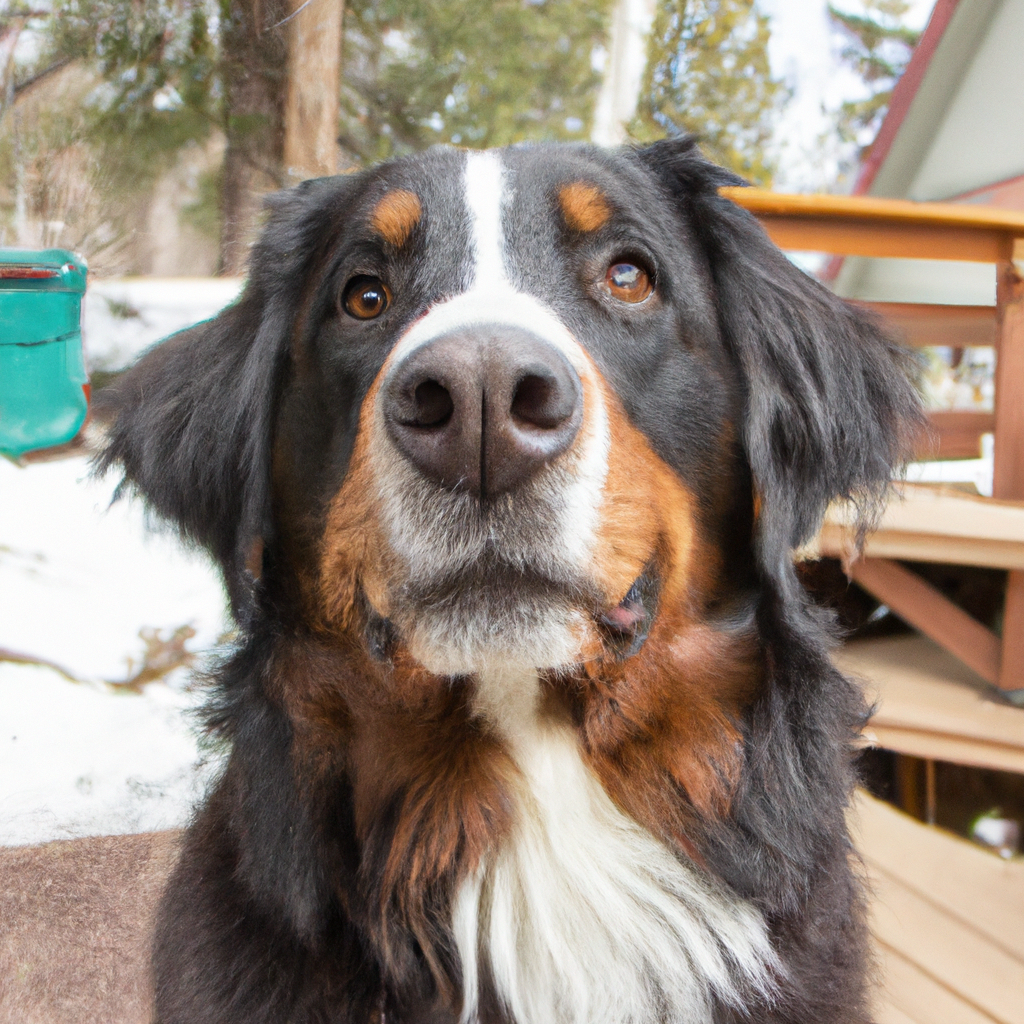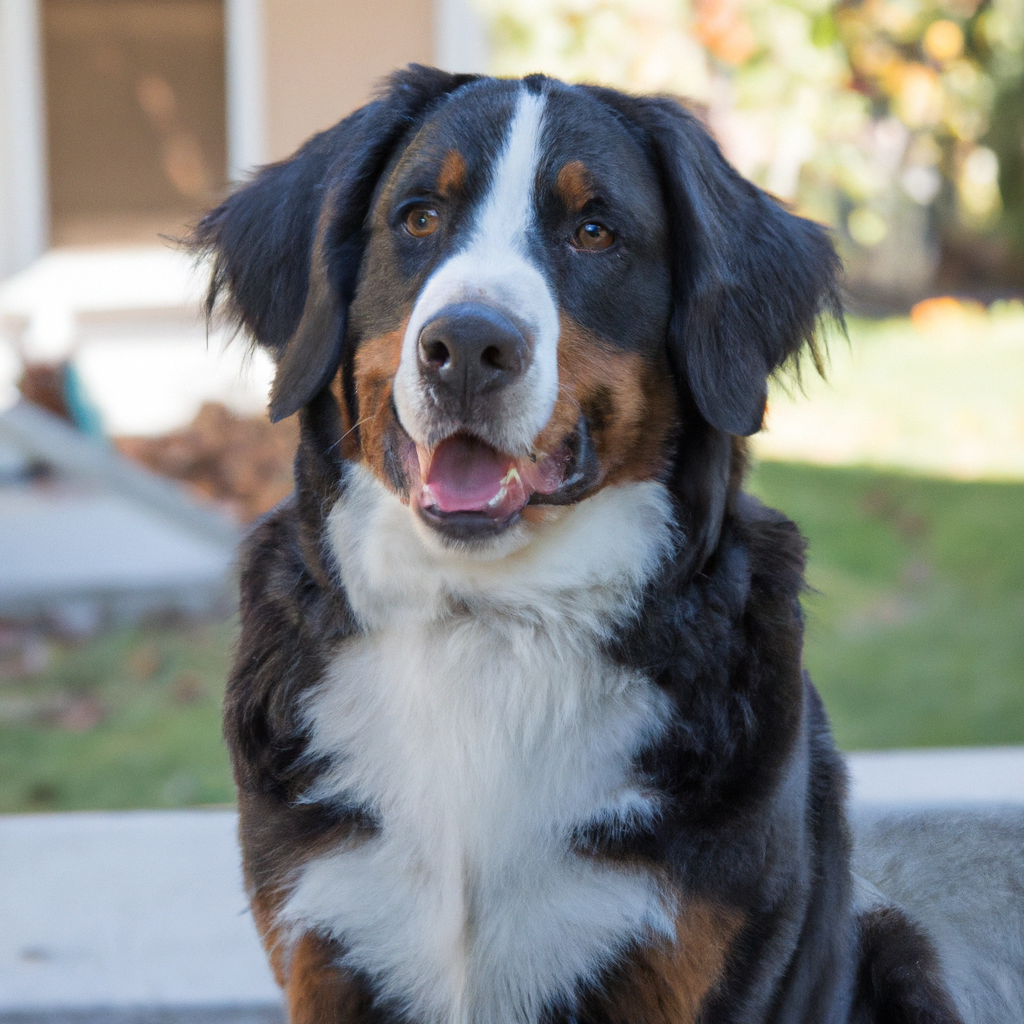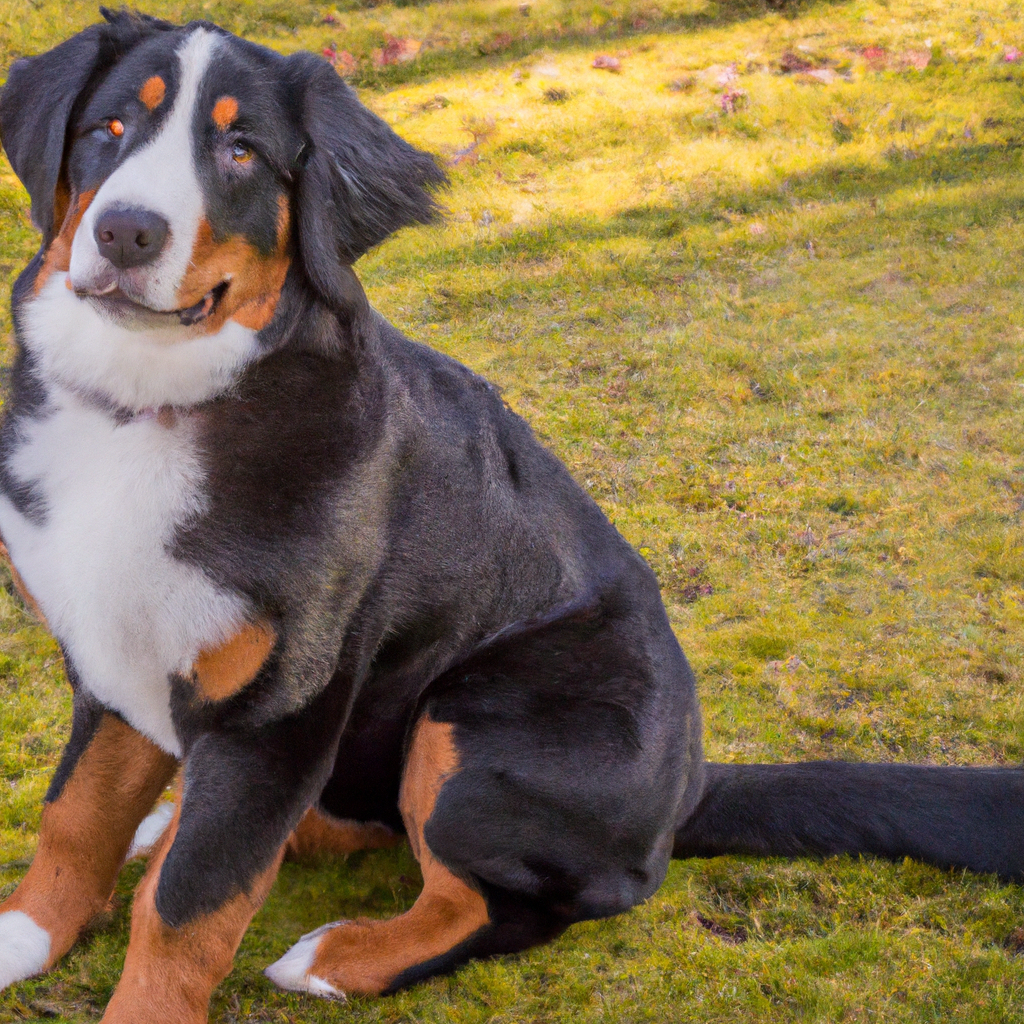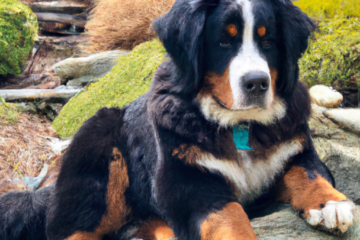Welcome to our comprehensive guide on Bernese Mountain Dog training in Santa Rosa! If you’re looking to raise a well-behaved and obedient Bernese Mountain Dog, you’ve come to the right place. In this guide, we will explore the best tips and techniques for training your furry companion in the beautiful city of Santa Rosa. From basic obedience commands to advanced tricks, we will cover everything you need to know to successfully train your Bernese Mountain Dog. Whether you’re a new dog owner or a seasoned pro, this guide is sure to provide valuable insights and advice for all your training needs. Let’s get started!
Understanding Bernese Mountain Dogs in Santa Rosa
Origin and History of Bernese Mountain Dogs
Bernese Mountain Dogs, also known as Berners, have a rich history that traces back to Switzerland. Originating from the canton of Bern, these dogs were traditionally working dogs on farms, assisting with tasks such as herding cattle, pulling carts, and guarding property. Their lineage can be dated back to Roman times when they were likely brought to Switzerland by invading Roman armies.
Characteristics and Temperament Specific to Bernese Mountain Dogs
Bernese Mountain Dogs are large, sturdy dogs with a striking tri-colored coat of black, white, and rust. Known for their gentle and affectionate nature, Berners are often described as good-natured and devoted companions. They are intelligent and eager to please, making them relatively easy to train with the right approach. However, they can also be sensitive, so positive reinforcement methods are highly recommended for training.
Importance of Proper Training for Bernese Mountain Dogs in Santa Rosa
Training is crucial for Bernese Mountain Dogs in Santa Rosa to ensure they develop into well-behaved and well-adjusted pets. Due to their size and strength, proper training helps prevent behavioral issues and ensures they can socialize effectively with other dogs and people in the community. Additionally, training provides mental stimulation for these intelligent dogs, keeping them happy and fulfilled in their role as beloved family members.
Establishing a Positive Training Environment

Creating a Safe and Comfortable Space
When establishing a positive training environment for your Bernese Mountain Dog in Santa Rosa, it is crucial to create a safe and comfortable space that fosters learning and focus. Here are essential tips for setting up the training area:
-
Designated Training Area: Designate a specific area in your home or yard in Santa Rosa for training sessions with your Bernese Mountain Dog. This space should be free from clutter and large enough to allow for movement and engagement during training exercises.
-
Free from Distractions: Ensure the training environment is free from distractions that could divert your dog’s attention away from the training sessions. This means keeping other pets, loud noises, or activities that may cause disruptions away from the training area.
-
Comfortable Flooring: Choose a training area with flooring that is comfortable and safe for your Bernese Mountain Dog. Avoid areas with slippery surfaces that could lead to accidents or discomfort during training sessions.
-
Proper Lighting and Ventilation: Adequate lighting and ventilation are essential for creating a welcoming training space for your Bernese Mountain Dog. Natural light and fresh air can contribute to a positive training experience and help keep your dog alert and engaged.
-
Access to Water and Rest Area: Make sure your training area in Santa Rosa has easy access to water for hydration breaks and a designated rest area where your Bernese Mountain Dog can take short breaks between training exercises. This will help maintain your dog’s comfort and well-being during training sessions.
Developing a Consistent Routine
Establishing a consistent routine is paramount when training Bernese Mountain Dogs. These intelligent and loyal animals thrive on structure and predictability. By setting a regular training schedule, you are providing your Bernese Mountain Dog with a sense of security and understanding of what is expected from them. Here are some key points to consider when developing a consistent routine for training:
-
Set Specific Training Times: Designate specific times during the day for training sessions. Consistency in timing helps your Bernese Mountain Dog anticipate when learning will take place, making them more receptive to training.
-
Short and Frequent Sessions: Break down training into short, frequent sessions rather than long, intense ones. Bernese Mountain Dogs have a moderate attention span, so keeping training sessions brief helps prevent them from becoming bored or overwhelmed.
-
Mix Up Training Activities: Introduce variety into your training routine to keep your Bernese Mountain Dog engaged and motivated. Incorporate obedience training, socialization exercises, and fun activities to prevent monotony and stimulate their intellect.
-
Practice Patience and Persistence: Consistency is key when training Bernese Mountain Dogs. Be patient with your furry companion and maintain a positive attitude even when faced with challenges. Remember that learning takes time and repetition, so stay persistent in your efforts.

Basic Training Techniques for Bernese Mountain Dogs
Teaching Commands and Basic Obedience
Training commands such as sit, stay, and come are fundamental for establishing clear communication with your Bernese Mountain Dog. Consistency is key when teaching these commands, as dogs thrive on routine and repetition. Start with one command at a time to prevent confusion and ensure successful learning.
Tips for Teaching Commands:
– Sit: Begin by holding a treat close to your dog’s nose and slowly lifting it upwards. As the dog’s head follows the treat, their bottom should naturally lower to the ground. Once in a sitting position, reward them immediately with the treat and praise. Repeat this sequence multiple times daily to reinforce the command.
– Stay: To teach your Bernese Mountain Dog to stay, first command them to sit. Then, take a step back and hold your hand up with the palm facing the dog while firmly saying “stay.” If the dog remains in place, reward them with a treat and praise. Gradually increase the distance and duration of the stay command over time.
– Come: Use a cheerful tone when calling your dog to come to you. Start by practicing in a quiet, familiar environment with minimal distractions. When the dog responds and approaches you, reward them with a treat and enthusiastic praise. Consistent positive reinforcement will encourage your Bernese Mountain Dog to come when called, even in more challenging situations.
Incorporating treats and praise effectively during training sessions can motivate your Bernese Mountain Dog to learn and follow commands eagerly. Remember to keep training sessions short and engaging to maintain your dog’s interest and focus. With patience and dedication, you can build a strong foundation of basic obedience skills that will benefit both you and your furry companion.
Leash Training and Socialization
Leash training for Bernese Mountain Dogs in Santa Rosa is crucial due to their large size and strength. These dogs have a tendency to pull on the leash, making it essential to teach them proper leash manners.
To start leash training a Bernese Mountain Dog, it is recommended to use a sturdy, comfortable leash and collar. Begin by allowing the dog to get used to wearing the collar. Once the dog is comfortable with the collar, introduce the leash gradually. Start by letting the dog drag the leash around in a safe environment to get accustomed to the feeling.
When the Bernese Mountain Dog is comfortable with the leash, start short training sessions in a quiet, distraction-free area. Use positive reinforcement techniques such as treats and praise to reward the dog for walking nicely on the leash. Consistency is key in leash training. Ensure that the dog understands that pulling on the leash will not be rewarded.
Socialization is equally important for Bernese Mountain Dogs in Santa Rosa. These dogs are known for their gentle and friendly nature, but proper socialization can prevent any potential behavioral issues. Exposing the dog to various environments, people, and other animals from a young age is essential.

To socialize a Bernese Mountain Dog effectively, start with controlled introductions to other dogs and people. Observe the dog’s body language and reactions to ensure they are comfortable. Gradually increase the exposure to different situations while always monitoring the dog’s behavior. Positive experiences during socialization will help the dog become well-adjusted and confident.
Advanced Training Strategies for Bernese Mountain Dogs
Agility Training
Introducing agility exercises to keep Bernese Mountain Dogs active:
Agility training is a dynamic and engaging way to ensure that Bernese Mountain Dogs stay physically fit and mentally stimulated. By incorporating activities such as weaving through poles, navigating tunnels, and jumping over hurdles, owners can help their Bernese Mountain Dogs maintain a healthy level of activity. These exercises not only provide physical exercise but also challenge the dog’s problem-solving skills and coordination.
Benefits of agility training for physical and mental stimulation:
Engaging in agility training offers a myriad of benefits for Bernese Mountain Dogs. Physically, it helps improve their strength, endurance, and flexibility. Mentally, agility training requires dogs to focus, follow commands, and make quick decisions, enhancing their cognitive abilities. Additionally, the bond between the owner and the dog is strengthened through positive reinforcement and teamwork during agility sessions. Overall, incorporating agility training into a Bernese Mountain Dog’s routine can lead to a happier, healthier, and more well-rounded pet.
Advanced Obedience Training
Advanced obedience training for Bernese Mountain Dogs goes beyond basic commands to enhance their responsiveness and reliability in various situations. Here are some key strategies for advanced obedience training:
-
Training for Off-Leash Obedience in Controlled Environments: Teaching your Bernese Mountain Dog to obey commands even when off-leash requires gradual progression and consistency. Start in a fenced area or enclosed space to minimize distractions and gradually work towards more challenging environments. Use positive reinforcement techniques such as treats and praise to reward desired behaviors.
-
Implementing Distance Commands and Recall Training Techniques: Building a strong recall response is crucial for off-leash safety. Practice recall exercises by gradually increasing the distance between you and your dog while reinforcing the command. Use high-value rewards to motivate your Bernese Mountain Dog to return to you reliably, even from a distance. Incorporate distractions gradually to test and strengthen their recall skills in real-world scenarios.
Addressing Common Behavioral Issues
Handling Separation Anxiety
Separation anxiety is a common behavioral issue among Bernese Mountain Dogs that can manifest in destructive behaviors, excessive barking, and restlessness when left alone. To address this issue effectively in Santa Rosa, consider the following tips:
- Gradual Departures: Practice leaving the house for short periods and gradually increase the duration to help your Bernese Mountain Dog acclimate to your absence.
- Desensitization: Use cues like picking up keys or putting on shoes without actually leaving to reduce anxiety triggers associated with your departure.
- Comfort Items: Provide your dog with comforting items such as a favorite toy or blanket that has your scent to help them feel secure in your absence.
- Exercise and Mental Stimulation: Ensure your Bernese Mountain Dog gets enough physical exercise and mental stimulation to help alleviate anxiety and restlessness when alone.
- Professional Help: Consider seeking assistance from a professional dog trainer or behaviorist in Santa Rosa if the separation anxiety persists despite your efforts.
Dealing with Aggression
- Identifying signs of aggression in Bernese Mountain Dogs
Aggression in Bernese Mountain Dogs can manifest in various ways, including growling, barking, snapping, or even biting. It’s crucial for owners to pay attention to any sudden changes in their dog’s behavior that may indicate aggression. Signs such as stiff body posture, raised fur, showing teeth, or intense staring should not be ignored. These signals can help identify potential triggers for aggression, whether it’s fear, territoriality, or resource guarding.
- Implementing behavior modification techniques with professional guidance
When dealing with aggression in Bernese Mountain Dogs, seeking professional guidance from a certified dog trainer or behaviorist is highly recommended. These experts can assess the root cause of the aggression and tailor a behavior modification plan to address it effectively. This may involve positive reinforcement training, desensitization techniques, and counterconditioning to help the dog overcome aggressive tendencies. Consistency, patience, and a structured training approach are key elements in successfully modifying aggressive behavior in Bernese Mountain Dogs.
Maintaining Training Consistency and Long-Term Success
Importance of Continuous Training
- Continuous training is crucial for the ongoing development and behavior of Bernese Mountain Dogs.
- Regular training sessions help to reinforce good habits and prevent regression in behavior.
- Incorporating refresher training sessions is essential to keep the dog engaged and responsive to commands.
- Consistent practice ensures that the dog retains the training it has received and continues to improve.
- Adjusting training techniques as the dog matures and learns is important to cater to its changing needs and abilities.
- Repetition and reinforcement are key components of continuous training to solidify the dog’s understanding of commands and expectations.
Seeking Professional Training Assistance
When it comes to seeking professional training assistance for Bernese Mountain Dogs in Santa Rosa, it is crucial to connect with experienced trainers who understand the unique needs and characteristics of this breed. Here are some key points to consider:
- Consulting with professional trainers in Santa Rosa for specialized training needs:
- Look for trainers who have specific experience working with large breeds like Bernese Mountain Dogs.
- Seek recommendations from local veterinarians or other Bernese Mountain Dog owners to find reputable trainers in the area.
-
Schedule consultations with potential trainers to discuss your dog’s temperament, behavior issues, and training goals.
-
Attending obedience classes and workshops to enhance training skills:
- Enrolling your Bernese Mountain Dog in obedience classes can provide structured training in a group setting.
- Workshops focusing on behavior modification or advanced training techniques can help address specific challenges your dog may be facing.
- Participating in these classes and workshops not only benefits your dog but also enhances your own training skills as a handler.
Professional training assistance can offer valuable guidance and support to ensure that both you and your Bernese Mountain Dog are equipped with the necessary tools for successful training and long-term behavioral success.
FAQs
Can Bernese Mountain Dogs be easily trained in Santa Rosa?
Bernese Mountain Dogs are intelligent and eager to please, making them relatively easy to train. However, like any breed, consistency and patience are key when it comes to training. In Santa Rosa, there are various training options available including puppy obedience classes, private training sessions, and even online resources to help you train your Bernese Mountain Dog effectively.
What are some specific training tips for Bernese Mountain Dogs in Santa Rosa?
Some specific training tips for Bernese Mountain Dogs in Santa Rosa include starting training early, using positive reinforcement techniques, socializing your dog with other pets and people in the area, and providing plenty of mental and physical exercise to keep them engaged and prevent boredom. Additionally, enrolling in obedience classes or working with a professional trainer in Santa Rosa can provide you with the guidance and support needed to train your Bernese Mountain Dog successfully.
How can I address any behavioral issues while training my Bernese Mountain Dog in Santa Rosa?
If you encounter any behavioral issues while training your Bernese Mountain Dog in Santa Rosa, it’s important to address them promptly and consistently. Whether it’s excessive barking, jumping, or pulling on the leash, seeking the help of a professional trainer in Santa Rosa can provide you with valuable insights and strategies to correct these behaviors effectively. Additionally, staying patient and consistent in your training efforts will help your Bernese Mountain Dog overcome any challenges they may face during the training process.

0 Comments